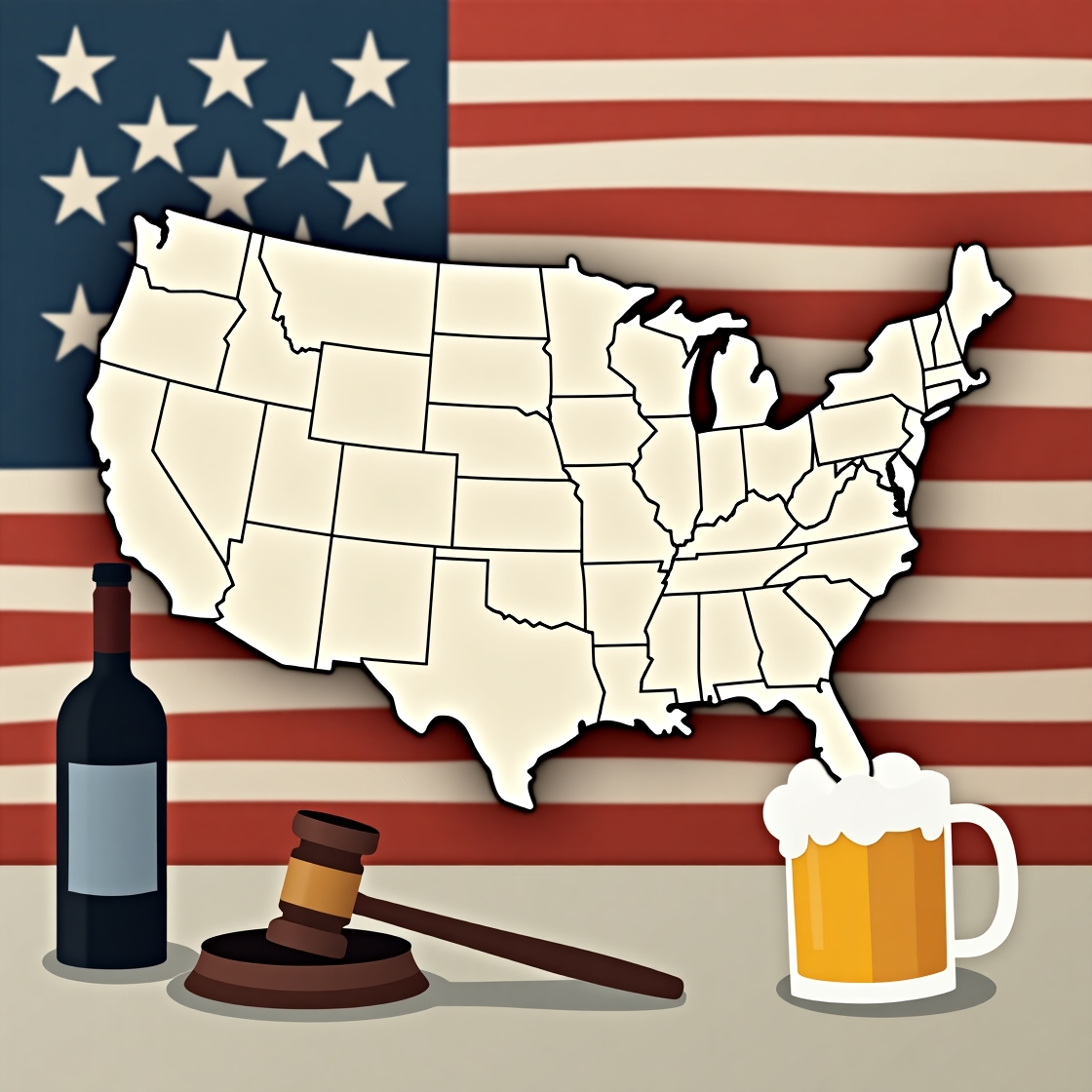Introduction
Alcohol laws in the US (United States) are complex, varied, and sometimes downright confusing. While the federal government sets some standards, most regulations are controlled at the state and even local levels. This means that what is legal in one place may be strictly prohibited in another. Whether you’re a resident or a traveler, understanding these laws can help you stay informed and avoid costly mistakes. In this article, we’ll explore the basics of alcohol laws in the US., including what you can and can’t do, and how these rules vary across the country.
1. Legal Drinking Age: 21 Is the Magic Number
The National Minimum Drinking Age Act of 1984 requires all states to enforce a minimum legal drinking age of 21. While some states allow exceptions for religious ceremonies or consumption in private residences with parental consent, the age limit for public consumption and purchase remains 21 nationwide.
What You Can Do:
- Drink alcohol legally if you are 21 or older.
- Possess and consume alcohol in private spaces (depending on state laws).
What You Can’t Do:
- Purchase alcohol if you are under 21.
- Use a fake ID to buy or consume alcohol.
- Provide alcohol to minors (even if you’re a parent, in most states).
2. Purchasing Alcohol: State and Local Rules Apply
Each state regulates how and where alcohol can be sold. Some states have government-operated liquor stores, while others allow private retailers. Hours of sale, days of the week, and types of alcohol sold (beer, wine, spirits) also vary widely.
What You Can Do:
- Buy alcohol during permitted hours and from licensed vendors.
- Order alcohol online or through delivery services where allowed.
What You Can’t Do:
- Purchase alcohol during prohibited hours (e.g., late night or Sunday mornings in some states).
- Buy alcohol in a “dry” county or city.
3. Drinking in Public: Know Your Open Container Laws
Open container laws prohibit drinking or possessing an open alcoholic beverage in public places like streets, sidewalks, and parks. Some cities like New Orleans and Las Vegas allow it in designated areas, but most do not.
What You Can Do:
- Drink in public only where local laws permit.
- Carry unopened containers of alcohol in public.
What You Can’t Do:
- Walk around with an open beer can or wine bottle in most public places.
- Drink alcohol in your parked car on the street.
4. Driving and Alcohol: Strict DUI Laws Nationwide
Driving under the influence (DUI) is a criminal offense in every state. The legal blood alcohol concentration (BAC) limit is 0.08% for drivers over 21, and much lower or zero for underage drivers.
What You Can Do:
- Drive only if your BAC is below the legal limit.
- Use ride-share services or taxis if you’ve been drinking.
What You Can’t Do:
- Drive while intoxicated or impaired.
- Refuse a breathalyzer test without consequences in states with implied consent laws.
5. Alcohol at Work and School: Off-Limits Zones
Most workplaces and schools have strict no-alcohol policies, especially public institutions. Alcohol use on the job or at school-sponsored events is usually prohibited.
What You Can Do:
- Consume alcohol at work-related events if specifically permitted.
- Drink off-campus and outside of school hours.
What You Can’t Do:
- Bring alcohol onto school property.
- Show up to work under the influence (unless your job involves alcohol tasting or hospitality events with permission).
6. Home Brewing and Distilling: A Legal Gray Area
While home brewing beer and wine is legal in all 50 states (up to certain limits), distilling spirits at home without a federal license is illegal, even for personal use.
What You Can Do:
- Brew beer and wine at home for personal use.
- Join a homebrewing club or community.
What You Can’t Do:
- Distill spirits like whiskey or vodka at home without a license.
- Sell homemade alcoholic beverages without proper permits.
7. Traveling with Alcohol: Rules for the Road and Air
Traveling with alcohol is legal, but there are limits. Airlines, TSA, and state highway patrols have rules about how much alcohol you can carry and how it must be stored.
What You Can Do:
- Pack up to 5 liters of alcohol in checked luggage on a flight.
- Transport alcohol across state lines for personal use.
What You Can’t Do:
- Drink alcohol in a moving vehicle.
- Violate state transport laws (some states limit how much alcohol you can bring in).
8. Alcohol and Religion: Special Exemptions Exist
Some religious ceremonies involve the use of alcohol, such as communion wine in Christian churches. Many states make legal exceptions for religious use.
What You Can Do:
- Use alcohol in religious services as permitted.
- Provide minors with alcohol for religious ceremonies (where legal).
What You Can’t Do:
- Use religion as an excuse to ignore public drinking or DUI laws.


